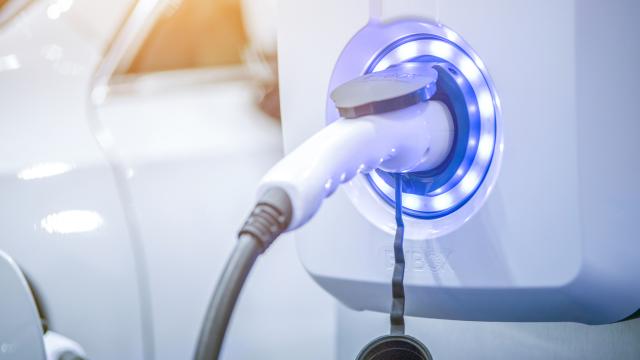Origin Energy has called on state and federal governments to incentivise the installation of smart chargers in the homes of electric vehicle drivers, which is bold considering trying to incentivise the actual cars is like pulling teeth.
The call comes after Origin conducted an Australian-first trial that analysed how EVs would impact the power grid when they’re eventually adopted more widely across Australia. During the study, the major energy provider found that things could be dire for the grid if everyone plugs in en masse when they get home from work.
Basically, Origin has suggested that charging times will need to be managed in order to prevent massive energy price spikes and potentially even blackouts when EVs become more prevalent in Australia.
According to Origin’s head of e-mobility, Chau Le, more than 60% of the participants in the trial were plugging their vehicles directly into the standard garage socket when they got home of an evening. Considering 5pm to 6pm onwards is a peak demand period for the power grid, this could cause some issues as EV uptake continues to rise.
[related_content first=”1197721″]
The solution? Smart chargers.
Origin has suggested that if the government were to incentivise the installation of smart chargers (which can begin charging when the grid is less busy and power is cheaper), consumption could be spaced out, thus lowering the risk of overloading the grid.
“Without incentives and regulatory policies that encourage smart charging, that’s what’s going to happen when mass-market adoption takes off; you’re going to have all these EVs [electric vehicles] that are being charged that cannot be enrolled onto smart-charging programs or cannot be managed,” Le said, according to SMH.
“We do expect… that will cause constraints on the network and the wholesale market, if it’s not managed properly.”
According to Origin, EVs could contribute an additional 22 terawatt hours towards the electricity grid by 2040, so it’s worth looking into this stuff before electric vehicles really get popular.
Obviously, it’s worth noting that the study was funded in part by Origin (with the remainder of the funding coming from the federal government’s Renewable Energy Agency), which is a major player in the power industry. But regardless, the findings are pretty interesting.
The findings come just days after New South Wales announced a $3,000 upfront discount and 100% stamp duty discount on new electric vehicles bought in the state, which is set to boost the uptake of EVs significantly. The NSW incentive is part of a $500 million plan to have battery-powered vehicles account for half of all new car sales in the state by 2031.
Federally speaking, Australia still has zero incentives to purchase an electric vehicle.
